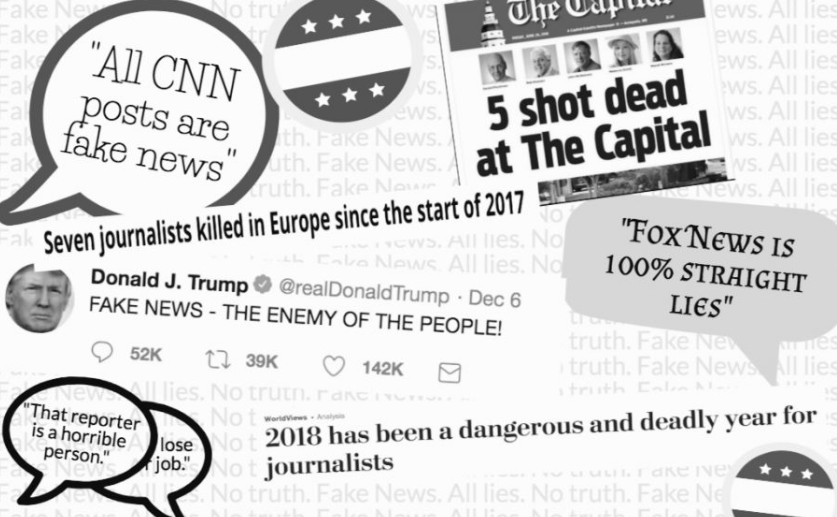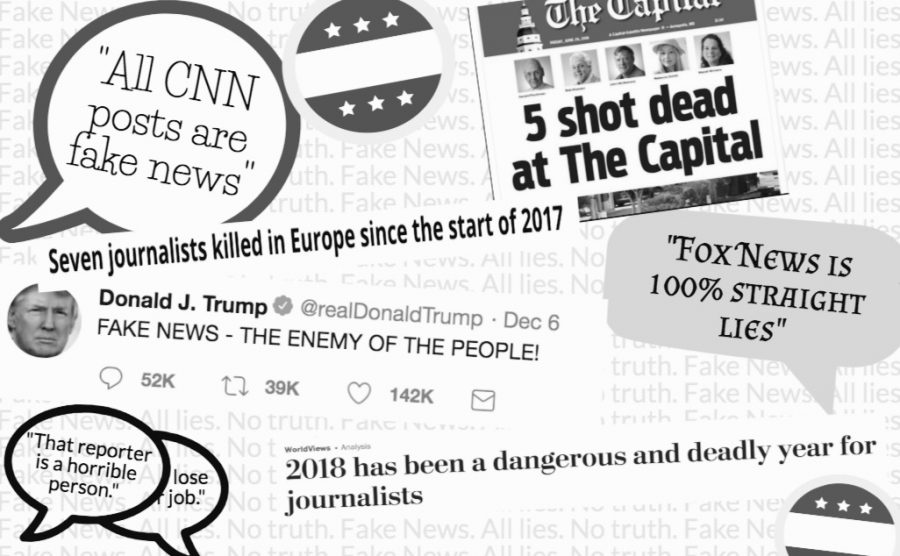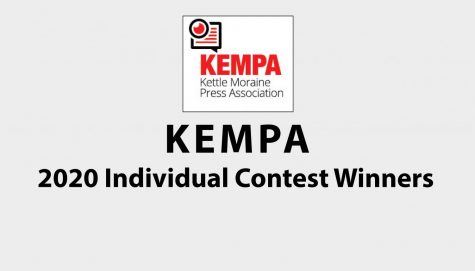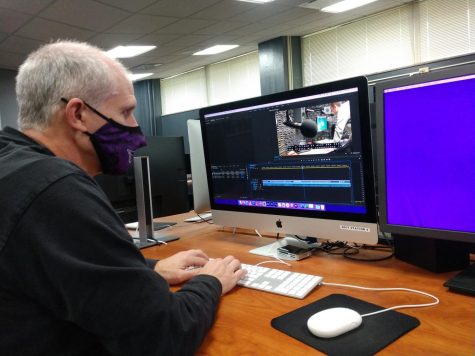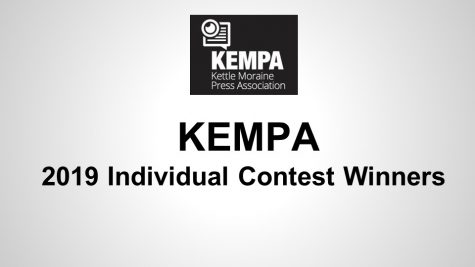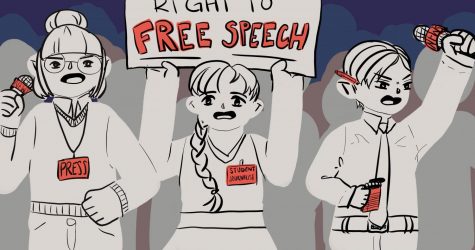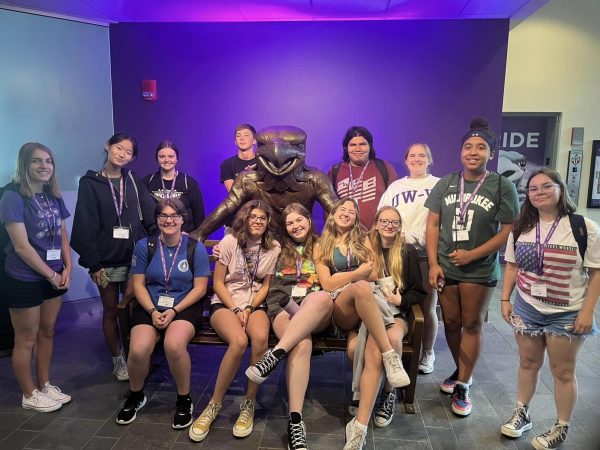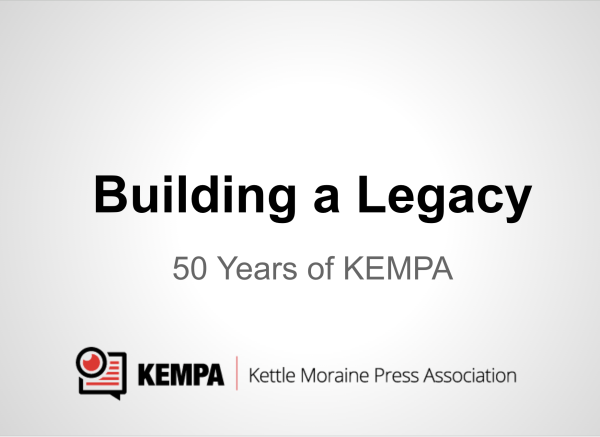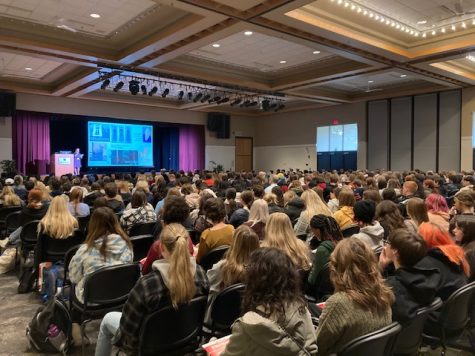Bear Facts Publishes Editorial about Free Press
As part of KEMPA’s mission to showcase student publications that are shining a light on today’s world in new and brave ways, we present an article that Bear Facts from Lake Zurich High School published on January 6, 2019: an editorial about free press.
The full article text follows, and the link to the original article is also provided to get to the Bear Facts webpage.
Viewpoint: Free press isn’t the enemy of the people
Published January 6, 2019
In a world where the free press has recently been called the “enemy of the people” and fact checked articles have been thrown around as “fake news”, it’s important to remember the consequence of journalism on our everyday student lives.
In the past few years, attacks on media sources from high officials, both Democratic and Republican, have become more frequent and more aggressive. It seems that anytime a politician doesn’t like what an article says, they immediately declare that the news outlet is a liar.
Is this fair? When highly trained, professional doctors diagnose you with a disease you don’t like, do you immediately call them “fake”? When skilled, experienced plumbers tell you your pipes are leaking, do you attack them on twitter and call their company a scam? Sure, reputable sources like The New York Times, Fox News, and CNN can have bias. They can publish misleading headlines, opinions from only one political party, or choose to only cover stories that push a certain agenda. But this does not make their fact-checked, credible articles “fake news.” The mainstream media certainly has bias and can make mistakes, but it cannot and does not publish straight lies.
Increasingly, however, Americans are being told the opposite of this. In a poll done by Monmouth University, more than 77 percent of 803 citizens believed that major television and newspaper media outlets report “fake news” a sharp increase from 63 percent just last year. This distrust of a free press can often stem from a false expectation, according to Julie Smith, instructor in the School of Communications at Webster University.
“Where is it written that we are entitled to objective news (news without bias)? Our news outlets are businesses – and if non-biased news made any money, we would have an objective news source,” Smith said. “Objectivity is ideal, but we’re naive if we think we’ll ever get it. Humans are biased creatures.”
It’s not rocket science that this objective, non-biased news is pretty hard to find. Even when taking politics and business out of the equation, journalists are still humans, with backgrounds of their own that influence their writing no matter how hard they try to remain objective. The real problem is that when prominent leaders mistake this unavoidable grey area for fake news, they are convincing the general public that journalism is fake too.
It makes sense why politicians and top officials would attempt to demean the very people questioning their authority, suggests The New York Times. In fact, they reported that before Thomas Jefferson was president, he famously wrote to a friend in 1787, “Were it left to me to decide whether we should have a government without newspapers, or newspapers without a government, I should not hesitate a moment to prefer the latter.” After being president, however, he commented, “Nothing can now be believed which is seen in a newspaper, truth itself becomes suspicious by being put into that polluted vehicle.”
Even in the 1700s, the press was clearly challenging some of Jefferson’s decisions in office, and he wasn’t too happy. Now, over 200 years later, the press is still challenging governmental authority, and will continue to be criticized by those receiving the criticism.
It’s okay as a student to question to credibility of a source, the opinions, or the author. It’s okay to follow multiple news outlets to ensure you get the correct information and are not being fed a certain agenda. But it is not okay to immediately call the free press the “enemy of the people” when in fact it has been keeping our rights in place, holding our leaders accountable, and distinguishing our government as a democracy. Despite mounting challenges and attacks, journalists will continue to protect your rights, and it’s up to you to decide if you will help protect theirs.
original link https://www.lzbearfacts.com/viewpoint/2019/01/06/viewpoint-free-press-isnt-the-enemy-of-the-people/

